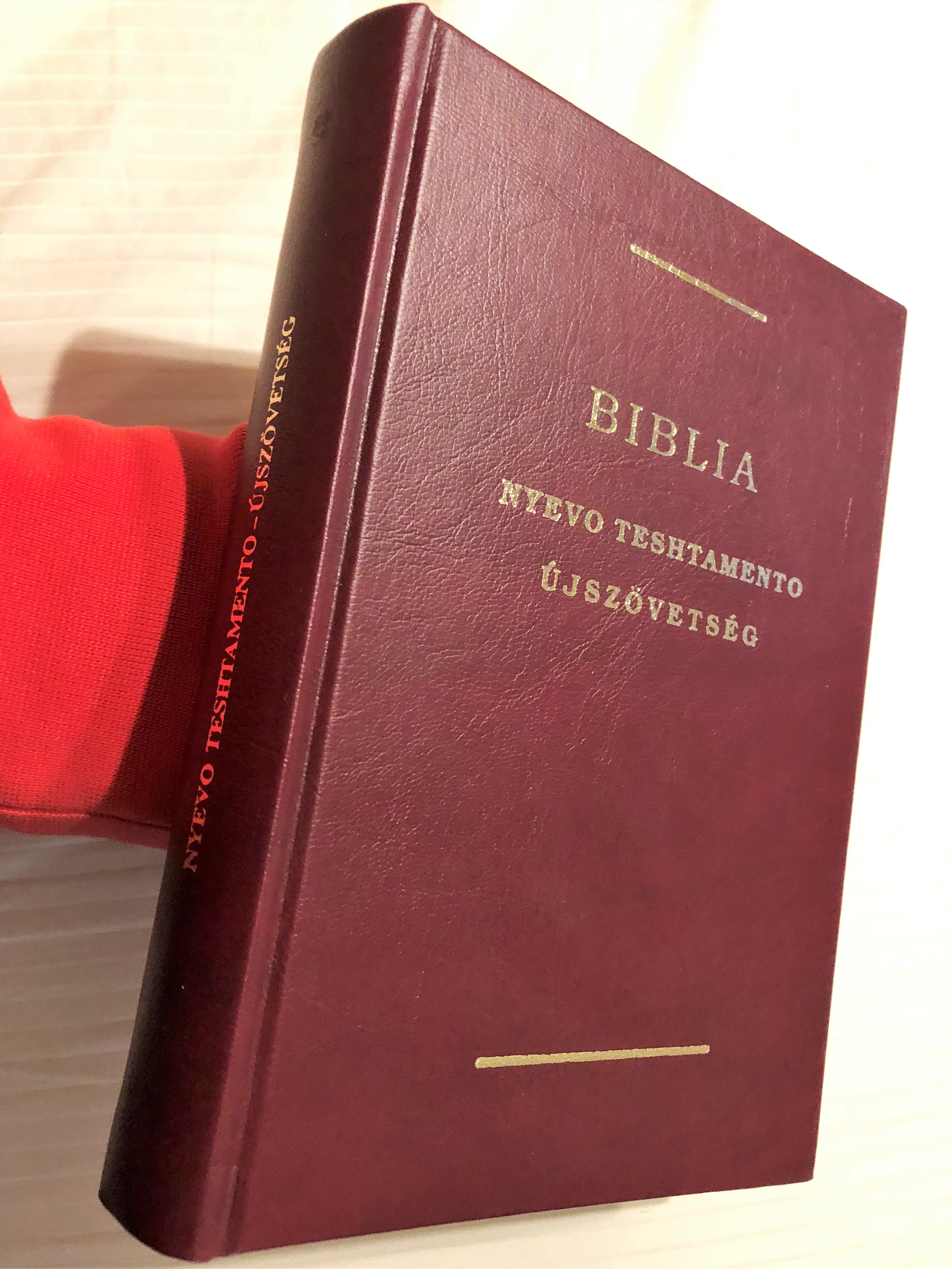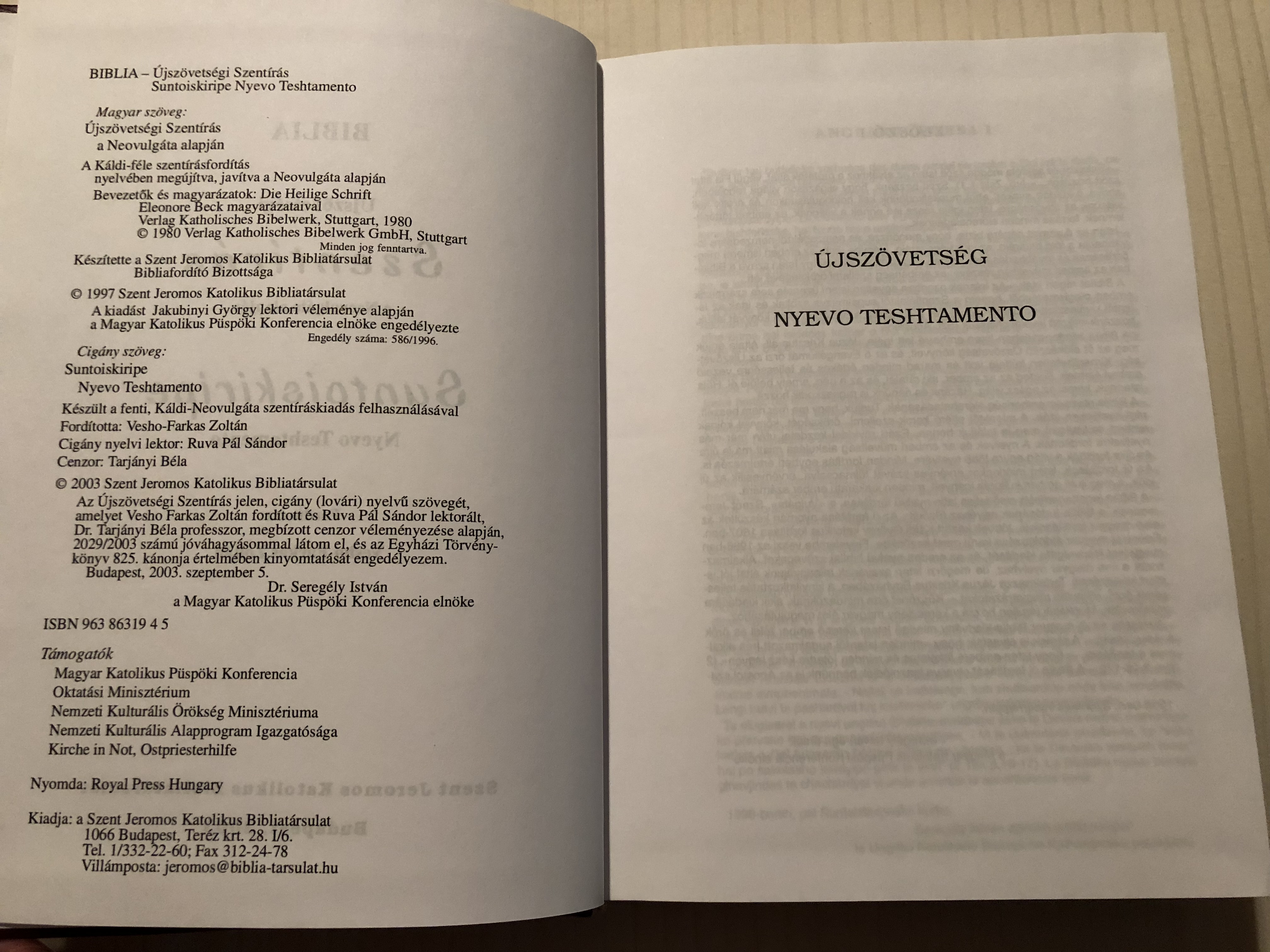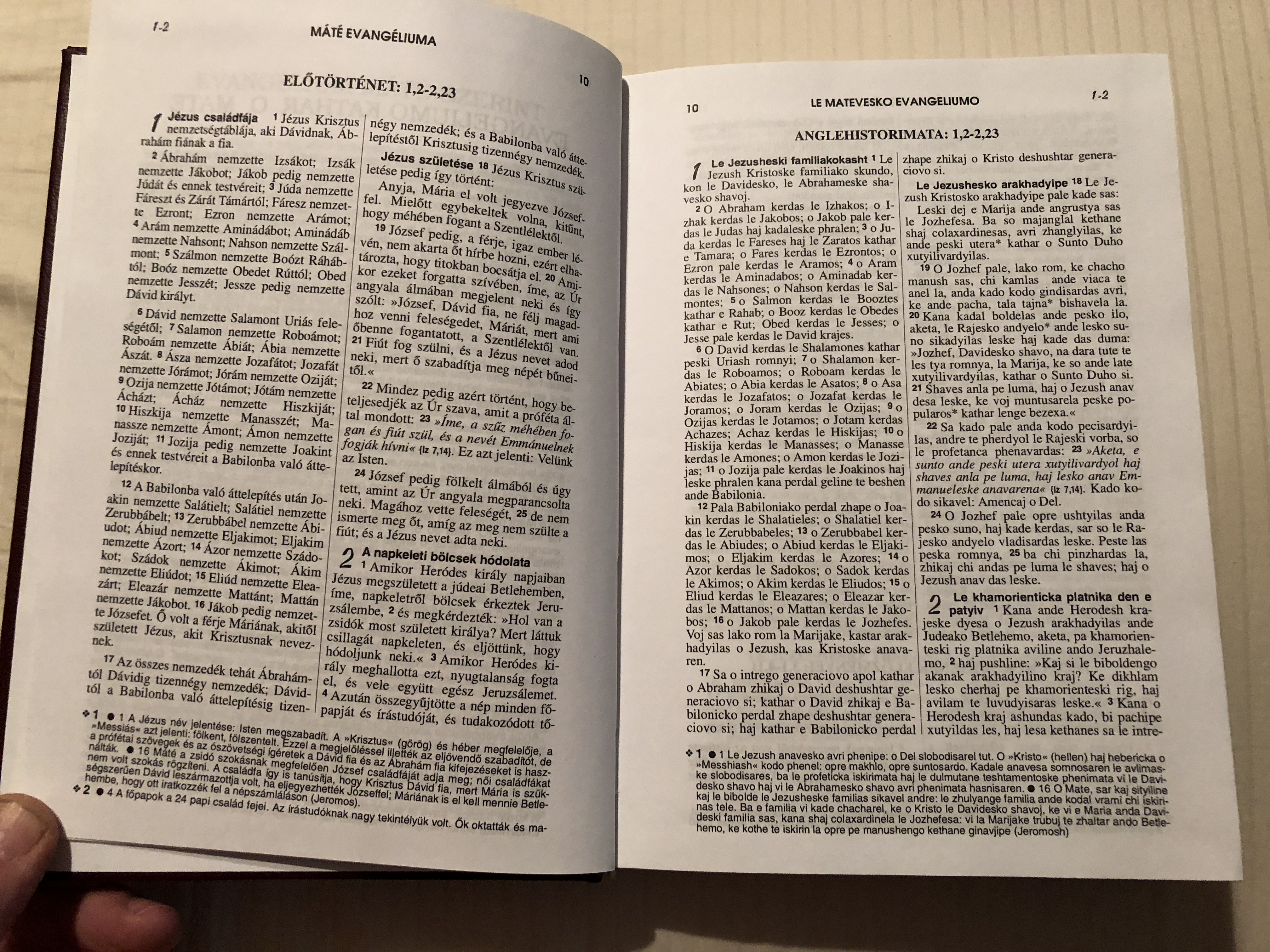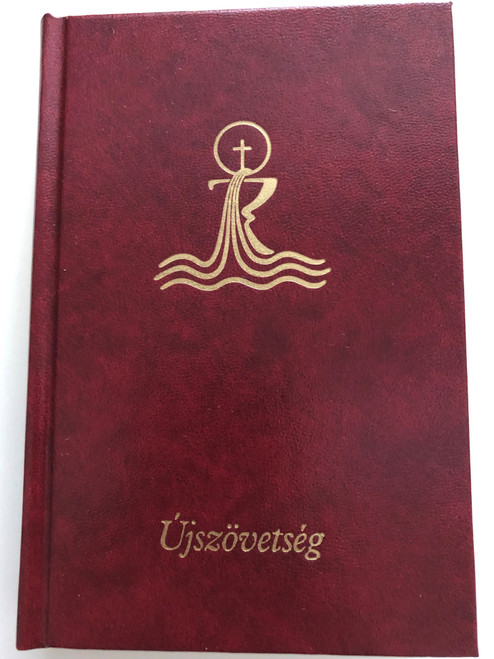Product Overview
Gypsy - Hungarian New Testament / Cigany - Magyar Ujszovetseg / Suntoiskiripe Nyevo Teshtamento / Biblia - Újszövetségi Szentírás a Neovulgáta alapján /SUNTOISKIRIPE NYEVO TESHTAMENTO - Nyelv: Magyar Cigány - 2003
FORDÍTÓ / Translator: Vesho-Farkas Zoltán
CIGANY NYELVU LEKTOR / Gypsy Language Lektor: Ruva Pál Sándor
Lovari ("horse-dealer", from Hungarian "ló", horse) is a subgroup of the Romani people, who speak their own dialect, influenced by Hungarian and West Slavic dialects. They live predominantly throughout Central Europe (Hungary, Poland, Slovakia, the Czech Republic, and Germany) as well as in Romania, Croatia, France, Italy, Greece and Ukraine.
Product Details:
- Hardcover
- Publisher: Bible Society
- Language: Magyar / Cigány // Hungarian / Gypsy
- Product Dimensions: 8.3 x 6.1 x 1.4 inches
- Shipping Weight: 12 ounces
- 289 pages
- Publisher: Szent Jeromos Katolikus Bibliatársulat (2003)
- ISBN-10: 9638631945
- ISBN-13: 978-9638631947 / 9789638631947
- PRINTED BY ROYAL PRESS HUNGARY
Summary:
Unveil the Gypsy Gospel: Where Faith Embraces Language in the "Suntoiskiripe Nyevo Teshtamento"
Beneath the vibrant tapestry of Roma culture lies a hidden treasure – the "Suntoiskiripe Nyevo Teshtamento," the New Testament translated into Lovari, a Romani dialect. More than just a religious text, it's a bridge connecting ancient wisdom to the nomadic soul, where faith whispers in the rhythm of their journeys.
Imagine:
- The Sermon on the Mount, echoing across windswept plains, carried on the tongues of traders and storytellers.
- Parables of forgiveness and redemption unfolding under starlit skies, shared around crackling campfires.
- The words of Jesus, sung in Lovari's lilting melodies, weaving a tapestry of faith and tradition.
This groundbreaking translation isn't just an academic feat; it's a cultural revolution. Translator Vesho-Farkas Zoltán deliberately chose "pure" Lovari, minimizing foreign influences. This wasn't mere scholarship; it was a deliberate act of reclaiming identity, of making the divine word resonate within the Roma spirit.
Agnes Jovanovics, a Roma teacher, captures the essence of this transformation: "The Bible in Lovari means a great deal. It's like the Bible was always meant to be sung in our language, like the stories were whispered by our grandmothers under the stars."
This isn't just a book; it's a homecoming. It allows the Roma people to embrace their faith without sacrificing their linguistic heritage. It empowers them to see their language, often marginalized and misunderstood, as a vessel for the divine.
The "Suntoiskiripe Nyevo Teshtamento" is more than just words on a page; it's a testament to the resilience of the human spirit. It's a beacon of hope, a reminder that faith transcends borders and finds its home in the hearts of all, regardless of their tongue or their travels.
So, step outside the confines of language, and enter the vibrant world of the Roma. Let the Lovari Bible take you on a journey across rolling plains and starlit nights, where faith finds its truest expression in the whispers of the wind and the rhythm of ancient tongues.
Additional Tips:
- You can further explore the cultural significance of the Lovari Bible by researching Romani traditions and their relationship with storytelling and spirituality.
- Compare and contrast the use of Lovari in religious texts with its everyday usage in the Roma community.
- Investigate the impact of the Lovari Bible on Roma literacy and cultural preservation efforts.
























